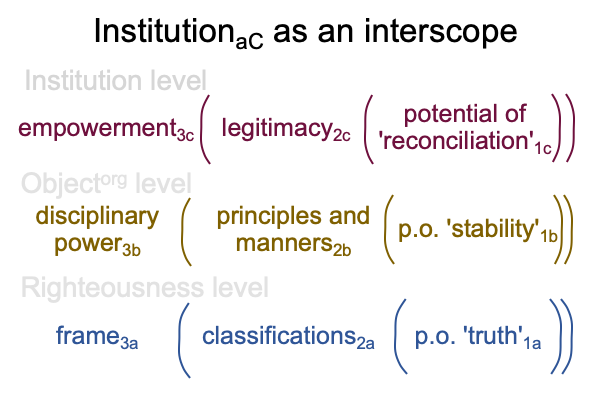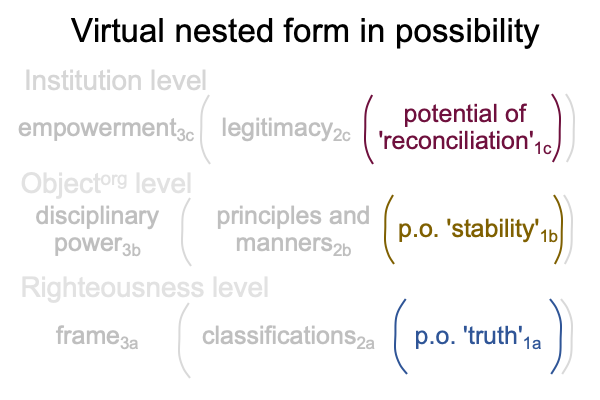0108 In John 18:38, Pilate replies, “What is truth?”
More on that later.
0109 In How Institutions Think, Mary Douglas calls into question rational choice theory and functionalism. These anthropological schools dismiss two sociologists, Emile Durkheim and Ludwig Fleck. These sociologists insist that institutions3aC interpellate individuals in communityA.
Interpellate?
“Inter” is Latin for “among”. “Pellate” is Latin for “call”.
0110 Institutions3aC call usA, like any person may call usA. Interpellation supports the notion that an institution is “a person writ large”.
At the same time, the contenta level of the societyC tier expands into an interscope that looks like the societyC tier. The similarity supports the notion that an institution is “a society writ small”.
Here is a picture.

0111 Now, I return to Pilate’s reply.
Jesus is not a contender for the throne of Judea. Instead, Jesus is a witness to the truth1aaC.
What do Jewish and Roman authorities fear? They fear loss of stability1baC. They fear that a king of the Jews will manifest. Neither the temple nor the legion would be able to control a priestly and a warrior king. So, both work against the rise of… what may be called… “David’s promised descendant1caC“.
0112 Why?
What would a return of David’s lineage do?
Would it reconcile the Jew and the Roman?
Or would it lead to a massive battle?
What does the truth that Jesus bears witness to eventually do?
Does it reconcile Jerusalem and Rome?
0113 Take a look at the virtual nested form in the realm of possibility.

0114 The normal context of reconciliation1caC virtually brings the actuality of stability1baC into relation with the potential of the truth1aaC.
